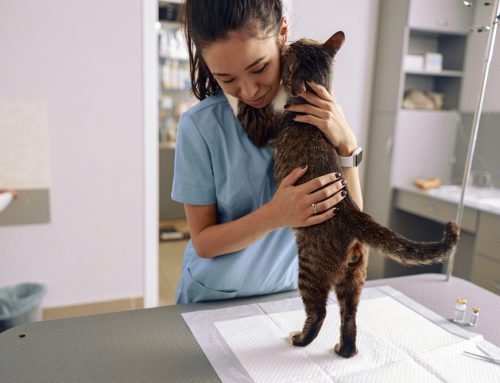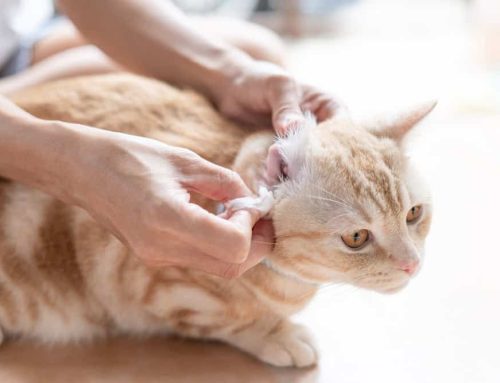Chronic kidney disease (CKD) is a serious condition that commonly affects senior cats. The condition can be difficult to detect in its earliest stages and is usually fatal if left untreated. Our team at Kauai Veterinary Clinic answers frequently asked questions (FAQs) about chronic kidney disease in cats, including the signs and management options.
Question: What is chronic kidney disease in cats?
Answer: CKD is a progressive condition characterized by the gradual deterioration of the kidneys’ ability to perform their normal functions, particularly the ability to filter waste products from the bloodstream. The kidneys play a crucial role in maintaining a cat’s overall health by regulating their electrolyte balance and blood pressure and producing hormones. When CKD occurs, these functions are compromised.
Q: What causes chronic kidney disease in cats?
A: Cats’ exact CKD cause can often be challenging to pinpoint. However, several factors may contribute to the condition’s development, including:
- Age — CKD is prevalent in older cats, as the kidneys naturally age and lose function over time.
- Genetics — Some breeds, such as Persian and Siamese cats, may have a genetic predisposition to CKD.
- Infections — Recurrent or severe urinary tract infections (UTIs) can lead to kidney damage if left untreated.
- Toxins — Exposure to certain toxins, such as antifreeze, pesticides, or certain medications, can harm the kidneys.
- Hypertension — High blood pressure can damage the kidneys’ delicate structures.
- Dental disease — Severe dental disease can introduce bacteria into the bloodstream, potentially affecting the kidneys.
- Dehydration — Insufficient water intake can strain the kidneys and may contribute to CKD.
Q: What are the signs of chronic kidney disease in cats?
A: Early CKD signs can be subtle and may not manifest until the disease has progressed significantly. Cats’ common CKD signs include:
- Increased thirst and urination
- Weight loss
- Decreased appetite
- Vomiting and nausea
- Bad breath
- Oral ulcers
- Lethargy and weakness
- Poor coat condition
- Muscle wasting
Q: How is chronic kidney disease diagnosed in cats?
A: Because the signs’ onset may indicate that your cat’s condition has advanced, you should seek prompt veterinary care if you suspect your cat has CKD. Diagnosis typically involves a combination of the following:
- Physical examination — Our team will perform a thorough physical examination and assess your cat’s overall health.
- Blood and urine tests — Blood tests, such as blood urea nitrogen (BUN) and creatinine levels, along with urinalysis, are essential for diagnosing CKD and assessing the condition’s stage.
- Imaging — In some cases, we may recommend an ultrasound or X-rays to see the kidneys and assess their size and structure.
- Blood pressure measurement — Hypertension is common in cats with CKD, so measuring blood pressure may be necessary.
Depending on these diagnostics’ results, our team may suggest additional tests. Performing more specific tests help us identify underlying causes or complications.
Q: How is chronic kidney disease treated in cats?

A: While CKD cannot be cured, early detection and appropriate management can help slow the condition’s progression and improve your cat’s quality of life. Treatment options may include:
- Specialized diet — Specialized kidney diets that are low in protein and phosphorus can ease the kidneys’ workload and reduce waste production.
- Fluid therapy — Subcutaneous fluid therapy can help maintain hydration, balance electrolytes, and flush toxins from the body.
- Medications — Depending on the stage and severity of your cat’s CKD, our team may prescribe medications to manage hypertension, control nausea, or address specific complications.
- Monitoring — Regular veterinary checkups, blood tests, and urine analysis are essential to track your cat’s condition and allow us to adjust their treatment as needed.
- Dental care — Proper dental care can prevent infections that might worsen CKD.
- Hypertension management — If your cat has high blood pressure, medication may be necessary to control the condition.
- Supportive care — Providing a comfortable and stress-free environment for your cat can make a significant difference in their overall wellbeing.
CKD is a serious condition that requires ongoing management and veterinary care. Because the disease becomes apparent only when advanced, regular preventive veterinary care is necessary to detect the disease in its early stages. Early detection, proper nutrition, and a supportive care team are essential for keeping your feline companion comfortable for as long as possible. If your cat is showing CKD signs, schedule an appointment with our Kauai Veterinary Clinic team.










Leave A Comment